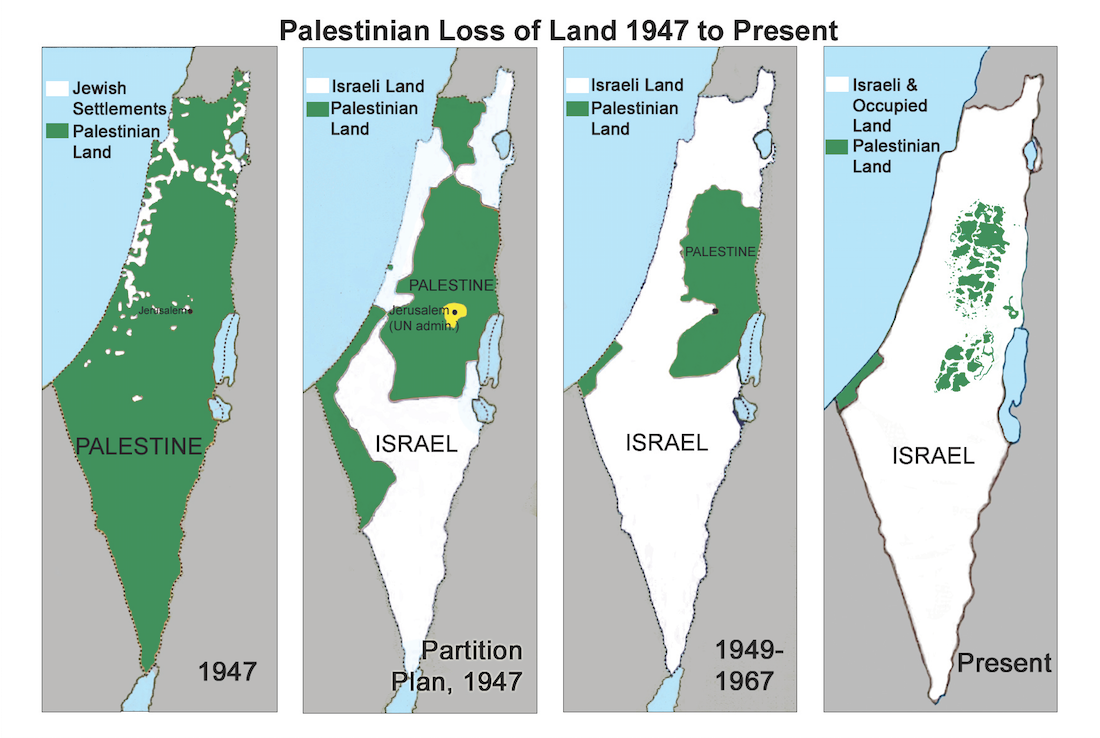
After the second world war the allies decided that a homeland was needed for the Jewish people, after the atrocities that had been inflicted on them in the Holocaust, Israel seemed like the perfect place as within it lies the city of Jerusalem, which is the holy land for Jews (also Christians and Muslims), but the country was already populated with Palestinians (who are mostly Muslim) and when the Jewish people started to migrate tension between the two peoples grew and before long war broke out, the conflict is still going on today and it can be argued that the Palestinians have been hit the hardest by the conflict:

As the Palestinians and Israelis both live the same country: Israel: their is only one government and the conflict is seen as a civil war, The Palestinians want a two state system but the Israelis hatred would put them at risk if the Palestinians gained statehood.
In 2011 Mahmoud Abbas, the chairman of the Palestine Liberation Organisation, submitted a request for Palestinian Statehood and in 2012 the UN voted and Palestine did not gain Statehood but it was recognised as a "non member observer state" which gave Palestine access to UN bodies.
By April 2013, 132 of the UN's 193 members recognized Palestine as state but it is yet to gain statehood.
It could be argued that the Israel vs Palestine conflict is not just about war but about religion: Judaism vs Islam, or even culture as many western cultures such as the US and the UK have taken Israel's which could may build further tensions between Islam and the West.

